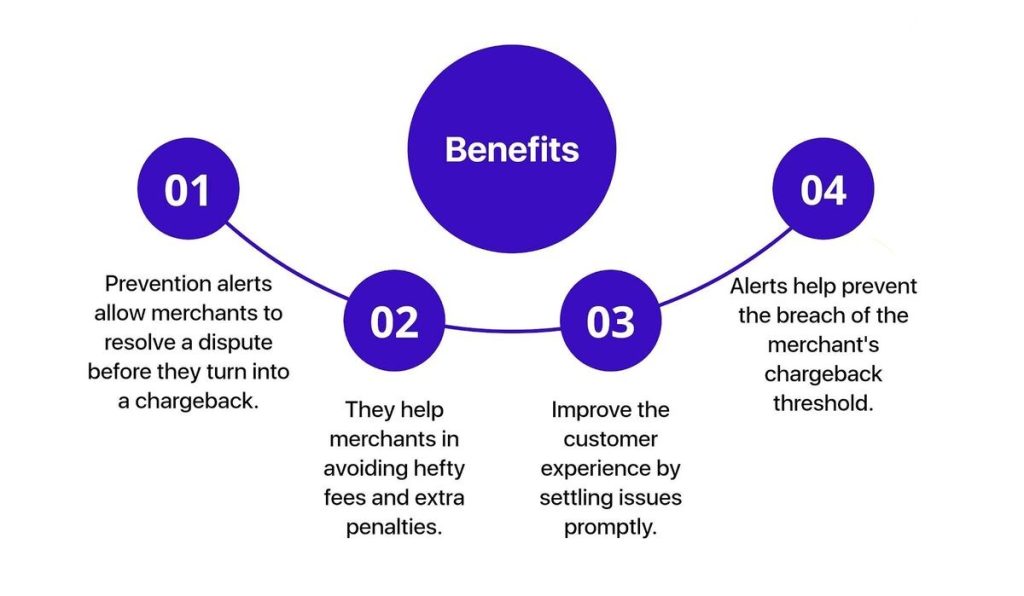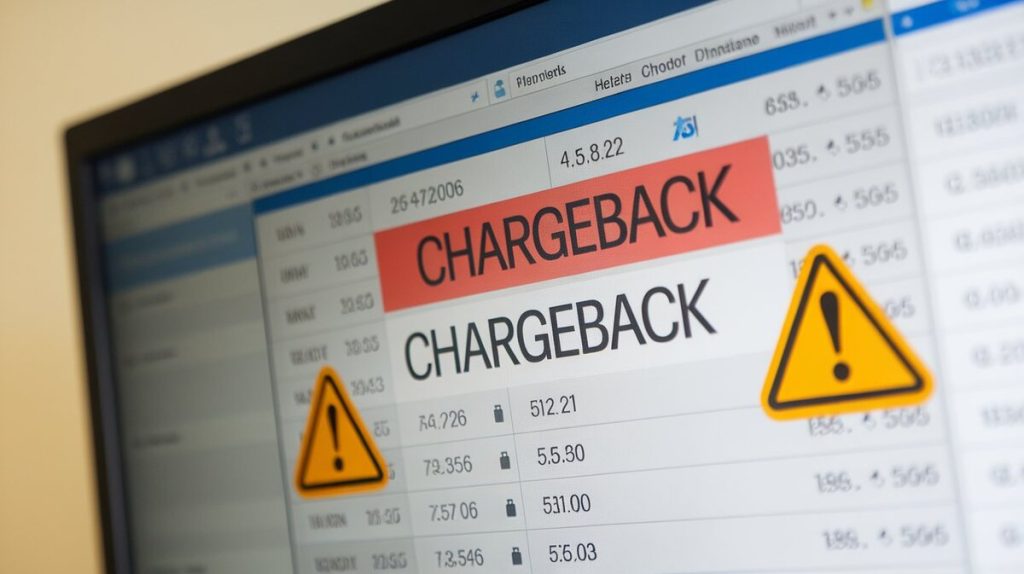Chargebacks are a significant challenge for businesses, especially those in e-commerce. With the increase in online transactions, chargebacks have become more frequent, leading to considerable financial losses for merchants. Chargeback prevention alerts are a vital tool in addressing this issue, allowing businesses to manage disputes before they escalate into costly chargebacks. This article examines chargeback prevention alerts, outlining their benefits, key providers, and integration strategies.
What Are Chargeback Prevention Alerts?
Chargeback prevention alerts notify merchants of potential disputes before they become formal chargebacks. When a customer disputes a transaction, the issuing bank sends an alert through a third-party service. This gives the merchant a limited window, typically 24 to 72 hours, to resolve the issue, usually by issuing a refund or providing additional transaction details.
Key Facts:
- Time Sensitivity: Merchants have 24 to 72 hours to address a dispute.
- Cost-Effectiveness: The average cost of a chargeback is $128, while alerts typically cost much less.
- Impact on Chargeback Ratios: Using alerts can reduce a merchant’s chargeback ratio by up to 40%.
Benefits of Chargeback Alerts
- Quick Dispute Resolution
- Efficiency: Alerts allow merchants to resolve disputes within hours instead of weeks.
- Lower Chargeback Ratios: Early resolution helps lower overall chargeback ratios, crucial for maintaining favorable terms with payment processors.
- Cost Savings
- Reduced Fees: Chargebacks incur fees ranging from $20 to $100 per incident. Alerts help avoid these fees.
- Operational Efficiency: Resolving disputes early reduces the time and resources spent on managing formal chargebacks.
- Improved Customer Relations
- Proactive Service: Addressing disputes before they escalate shows customers that their concerns are taken seriously, which can improve retention.

Top Providers of Chargeback Alerts
In the chargeback prevention space, Merchanto.org stands out. As an official partner of VISA and MasterCard, it offers comprehensive chargeback prevention services that integrate easily with existing business systems.
Comparison of Chargeback Alert Providers
| Provider | Coverage | Response Time | Key Features |
|---|---|---|---|
| Merchanto.org | Global | 24-48 hours | VISA and MasterCard partnership, CRM integration |
| Provider X | Regional | 24-72 hours | Focus on fraud detection |
| Provider Y | North America | 24-48 hours | Customization for enterprises |
Integrating Chargeback Alerts into Your Business
Integrating chargeback alerts requires planning to align with business operations. Here’s how to do it effectively:
- Select the Right Provider
- Coverage: Ensure the provider covers your key transaction regions.
- Response Time: Choose a provider with fast response times to maximize dispute resolution opportunities.
- Integrate with CRM and Order Management Systems
- Seamless Integration: Use a provider like Merchanto.org for easy integration with CRM and order management systems.
- Automated Workflow: Automate dispute resolution by integrating alerts directly into your workflow.
- Train Your Team
- Specific Training: Train your team to respond to alerts quickly and effectively.
- Clear Procedures: Establish clear procedures for handling alerts from receipt to resolution.
Case Studies: Real-World Impact of Chargeback Alerts
To demonstrate the effectiveness of chargeback prevention alerts, consider these case studies:
- Case Study 1: A mid-sized e-commerce retailer reduced its chargeback ratio by 35% within six months of implementing Merchanto.org’s alert system, saving over $50,000 annually in chargeback fees.
- Case Study 2: A subscription-based service provider avoided 80% of potential chargebacks by using a combination of automated alerts and proactive customer service.

Tables: Useful Data for Merchants
Table 1: Average Cost of Chargebacks vs. Alerts
| Type | Average Cost per Incident |
|---|---|
| Chargeback | $128 |
| Chargeback Alert | $10-$20 |
Table 2: Chargeback Ratios by Industry
| Industry | Average Chargeback Ratio | Impact of Alerts |
|---|---|---|
| E-commerce | 0.9% | Reduction by 40% |
| Subscription | 1.2% | Reduction by 35% |
| Digital Goods | 1.5% | Reduction by 45% |
Table 3: Impact of Chargeback Alerts on Operational Costs
| Operational Cost Area | Pre-Alert System | Post-Alert System | Savings |
|---|---|---|---|
| Dispute Handling | $30,000/year | $18,000/year | 40% |
| Chargeback Fees | $50,000/year | $30,000/year | 40% |
| Customer Support | $20,000/year | $12,000/year | 40% |
Conclusion and Call to Action
Chargeback prevention alerts are essential for businesses looking to protect their revenue and maintain positive relationships with payment processors like VISA and MasterCard. By integrating these alerts into your operations, you can preemptively address disputes, reduce your chargeback ratios, and minimize the financial impact of chargebacks. Proactive use of chargeback alerts not only saves costs but also improves customer satisfaction by ensuring swift issue resolution.
Businesses of all sizes can benefit from adopting a structured chargeback prevention strategy. Implementing the tools and practices discussed in this article can significantly reduce the risks associated with chargebacks, helping maintain a healthy business.
Take steps today to safeguard your business—explore the benefits of chargeback prevention alerts and ensure your operations are prepared to handle disputes efficiently.



